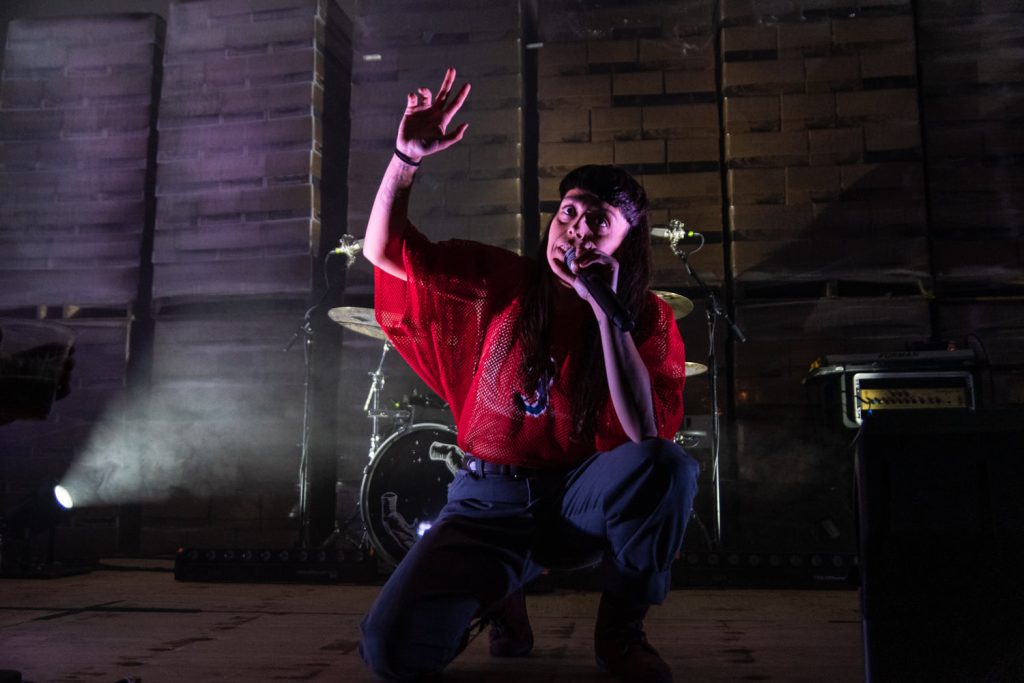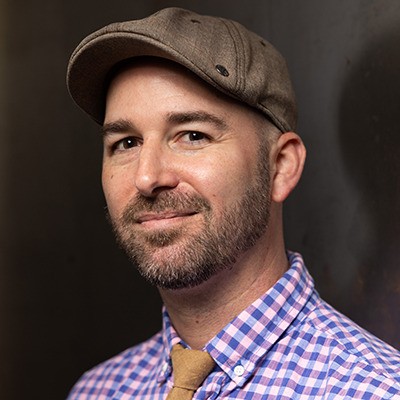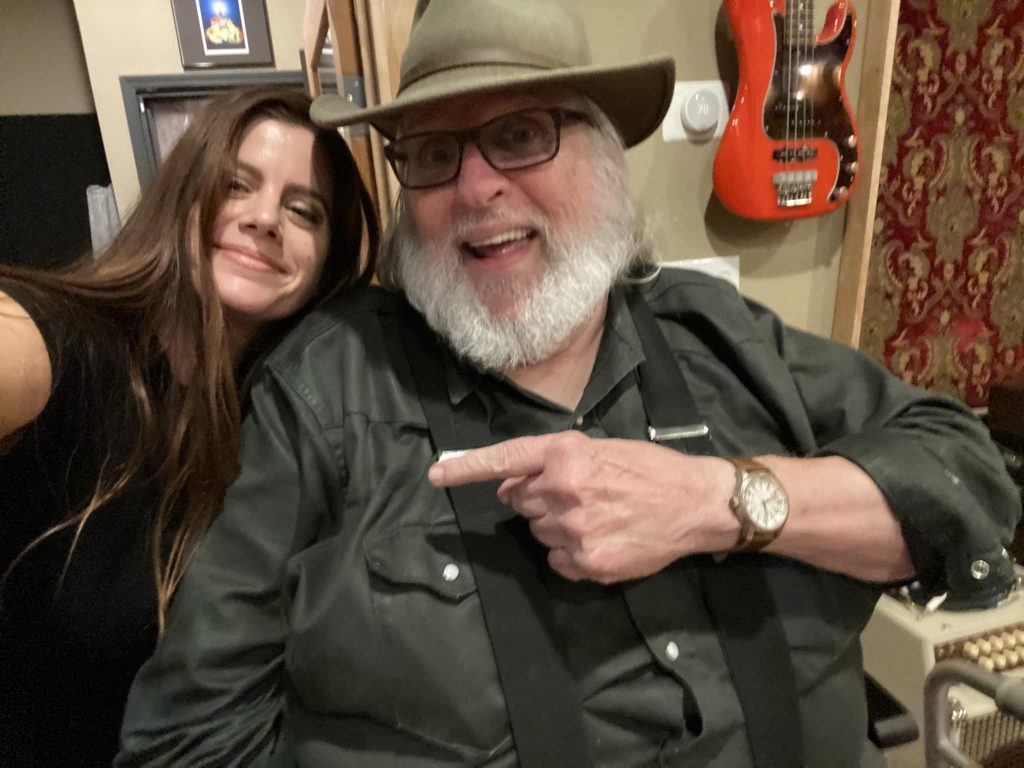Mick Martin, Nick Brunner, Josh Fernandez, Larisa Bryski, Rituals of Mine’s Terra Lopez and KSSU FM’s Casey Rafter will take center stage on Sept. 5 at The CLARA for conversations over food and drinks
By Scott Thomas Anderson
When the Blue Lamp nightclub closed just weeks before the pandemic, no one in Sacramento’s creative community knew the following years would bring a tsunami of stress as more beloved venues shuttered and others fought for a continued existence. Famous stages like Old Ironsides and The Boardwalk would close and then open again, while vital performance hubs like The Russ Room, Holy Diver and DeVere’s went permanently dark. And the fiscal chaos stole from the city in other ways: The galleries ArtSpace 1616 and JayJay were drowned by the ocean of uncertainty, Submerge Magazine quit its run and – by August of last year – the Sacramento Theater Company had canceled all of its productions after 78 years.
So, is California’s creative landscape any better with the pandemic a few years in the rearview?
Maybe not. This summer saw music festivals canceled from Redondo Beach to Mendocino County due to the blistering winds of high inflation and consumer belt-tightening.
All of these struggles have coincided with media in the state pulling back on arts coverage. Here in the Capital Region, some news agencies have practically halted arts coverage altogether.
When the Solving Sacramento journalism collaborative launched at the start of 2022, it was with the intent of addressing news deserts in the region and tackling social issues that require serious storytelling muscle. The collaborative spent its initial year publishing more than 56 pieces on the interlinked homeless and housing crisis before securing new funds to expand into badly needed arts coverage. Solving Sacramento has since published more than 70 pieces on the Capital City’s musicians, dancers, stage performers, writers, photographers and visual artists.

On Sept. 5, the collaborative will hold its first-ever fund-raiser to keep both its investigative journalism and its arts coverage going. It will be a night that features food, drinks and two live recordings of Solving Sacramento’s Creativity in the Capital podcast. Attendees will get to watch veteran radio voice Nick Brunner host a conversation between popular Sacramento writer Josh Fernandez, creator of the “This Is What It Feels Like” podcast, and Rituals of Mine musician Terra Lopez. They’ll also watch KSSU FM host and SN&R music writer Casey Rafter lead a conversation between California blues legend Mick Martin and G.I.R.L.S. Rock Sacramento co-founder Larisa Bryski. Both live recordings will be capped by Q&As from the audience that will make it into the published podcasts. Tickets for the event can be purchased here.
Being in the trenches of Sacramento’s creative community, Brunner and Rafter have both observed how the recent dearth of arts coverage – prior to Solving Sacramento’s arrival – has made the area hard to get by in.
“One of the questions I’ve asked in every episode of the podcast is, ‘What is it like out there?’” Rafter noted of the seven episodes of Creativity in the Capital he’s released. “What kind of resources are out there?’ Everybody needs new venues, whether it’s musicians, artists, painters or dancers, they’re all looking for a place to showcase their work that’s either profitable, or at least not the opposite of profitable – not losing their asses.”
He added, “It’s really about exposure: It’s like Malcolm Gladwell’s ‘10,000 hours’ thing, it takes so much time to grab a foothold and get attention.”

Brunner has been connecting listeners in the region with interesting and exciting musicians for a decade-and-a-half. Until recently, that was Capital Public Radio. Now it will be on the Creativity in the Capital podcast and in other venues. Brunner knows the drop-off in storytelling around Sacramento’s creatives has been a steep one.
“It’s happened over the last five or six years,” Brunner reflected. “I hate using the pandemic as the introductory to this problem, because I think there’s also been a lack of will, in addition to the pandemic causing the havoc that it did on arts coverage and journalism in Sacramento. We all know that COVID blew everything up in a way that was unlike anything we’d seen in our lifetimes. Okay, yeah – we’ve absorbed that. But I think it’s also been used as a convenient excuse for some media outlets to just say, ‘Well, we can’t do arts anymore – people just want news, news, news all the time.’ And I think that’s disingenuous.”
Brunner has seen media organizations in the Capital City walk away from arts coverage and he’s waited to see which organizations would “pick up the baton and run with it.” For him, Solving Sacramento’s arrival on the scene was fortuitous timing.
“I know Solving Sacramento is jumping on it in a big way,” Brunner observed. “This idea [some media outlets have that there is no ‘no money’ in arts] is a completely myopic and stupid view. If I’m speaking candidly here, I think that’s a dumb way of thinking about it. There’s tons of money in the arts economy here. When I hear things like that it makes me angry and makes me shake my head. It’s a matter of, ‘Well, you’re not thinking hard enough.’”
Indeed, a recent study found that the nonprofit arts and culture sector pumped $241.7 million into Sacramento County in 2022.

One organization that’s been promoting Sacramento’s creative economy is CLARA, the nonprofit managing the Auditorium at CLARA in Midtown. Most Sacramentans will recognize that beautifully ornate structure from 1920, which was originally the Fremont Primary School. The red brick landmark stands between N and O streets with its parking lot along 25th. Over the decades, the venerable school site fell into disrepair, ultimately getting boarded up in 2012 over code violations. However, in 2016, CLARA did a major overall of the building and restored it to historic standards. CLARA has since been working with the city of Sacramento and Sacramento Unified School District to make the architectural prize a center for student education in the arts. But the venue is also supporting an array of different arts and cultural groups with rehearsal and performance space, from swing and salsa dance groups to theater companies and storytelling organizations.
It’s only fitting that the Auditorium at CLARA is where Solving Sacramento’s first big fundraiser and live podcast recording will take place (its lot on 25th Street will provide free parking for those attending the event, to boot).
“It’s a fun opportunity to just come out and see what’s going on in Sacramento, culturally, at a single-entry point,” said Megan Wygant, CLARA’s executive director. “In terms of this upcoming event, because CLARA’s mission is really about making arts and culture accessible to the community, being able to host a fund-raiser for something like Solving Sacramento is very mission-aligned with what we do. We want to grow the arts community, so we’re really glad to be a sponsor of this event.”

From Rafter’s perspective, the boldness and innovation happening between organizations like Solving Sacramento, CLARA and Sacramento Office of Arts & Culture might equal reasons for local creatives to keep hanging on in the City of Trees. He even views the podcast dialog he’s hosting at the fundraiser as a milestone in the local music landscape.
“The thing I’m most excited about is getting Mick Martin in front of the crowd,” Rafter stressed. “We know this guy is an amazing storyteller, and has this breadth of knowledge on so many different mediums – I feel like it’s my job to get people like that out in front to tell the stories. So, to have him paired up with Larisa Bryski, who’s been doing Girls R.O.C.K. in Sacramento for like 20 years now – and before that, with Skip’s Music – is a really cool book end to the conversation. These are really interesting people with stories to tell about Sacramento’s history.”



Be the first to comment on "As performers struggle, a night of live podcast recordings in Midtown spurs fundraiser to keep journalistic arts coverage alive "